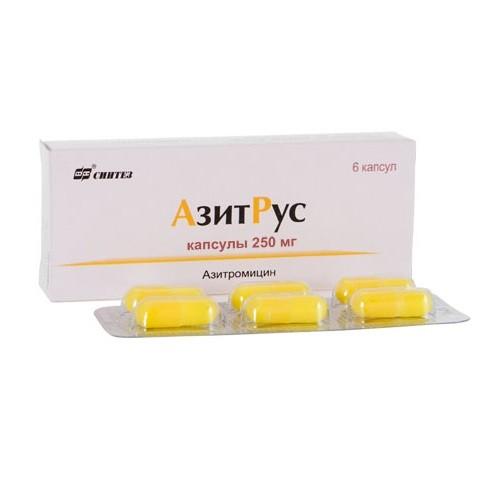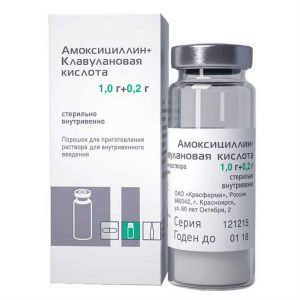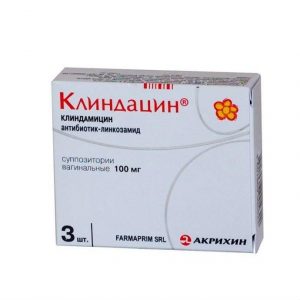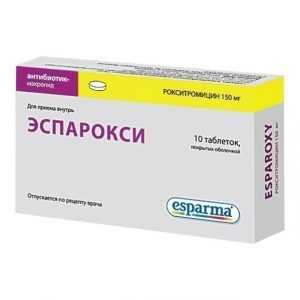Description
Release form
capsules
Packing
6 pcs.
Pharmacological action
AzitRus is a broad-spectrum antibiotic of the macrolide group, azalide. It acts bacteriostatically. By binding to the 50S subunit of the ribosome, it inhibits protein synthesis and slows the growth and reproduction of bacteria. AzitRus in high concentrations has a bactericidal effect. It acts on extra- and intracellular pathogens
Indications
Infectious and inflammatory diseases caused by microorganisms sensitive to the drug: – infections of the upper respiratory tract and ENT organs (including tonsillitis, sinusitis, tonsillitis, pharyngitis, otitis media)
– infections of the lower respiratory tract ( including bacterial and atypical pneumonia, bronchitis)
– infections of the skin and soft tissues (including erysipelas, impetigo, secondarily infected dermatoses)
– urinary tract infections (gonorrheic and non-chronic urethritis)
– infections of the reproductive system ( including . cervicitis)
– scarlet fever
– Lyme disease (borreliosis) in the initial stage (erythema migrans)
– diseases of the stomach and duodenum associated with Helicobacter pylori (as part of combination therapy).
Contraindications
renal failure
liver failure
lactation (breastfeeding)
children under 6 months of age (for suspension)
children under 3 years old and / or body weight less than 25 kg (for capsules)
children / or body weight less than 50 kg (for film-coated tablets)
hypersensitivity to the components of the drug, as well as to other macrolides.
With caution, the drug is prescribed for patients with cardiac arrhythmias (possible ventricular arrhythmias, prolonged QT interval), children with severe renal or hepatic impairment, during pregnancy.
Special instructions
AzitRus is not taken with meals.
In case of skipping reception, the missed dose should be taken as early as possible, and the subsequent ones with an interval of 24 hours.
It is necessary to observe a break of at least 2 hours between doses of AzitRus and antacid preparations.
After drug withdrawal, hypersensitivity reactions in some patients may persist, in such cases, the appointment of specific therapy under the supervision of a doctor is recommended.
Composition
1 capsule contains azithromycin (in the form of dihydrate) 250 mg
Dosage and administration of
For infections of the upper and lower respiratory tract, 500 mg / day is prescribed for 3 days (course dose – 1.5 g).
For infections of the skin and soft tissues, 1 g / day is prescribed on the 1st day, then 500 mg daily from the 2nd to the 5th day (course dose – 3 g).
For uncomplicated urethritis and / or cervicitis, a single dose of 1 g is prescribed.
For Lyme disease (borreliosis), 1 g is prescribed for the initial stage (erythema migrans) on day 1 and 500 mg daily from day 2 to day 5 ( course dose – 3 g).
In case of gastric and duodenal ulcer associated with Helicobacter pylori, 1 g / day is prescribed for 3 days as part of combination anti-Helicobacter therapy.
Children
AzitRus capsules are prescribed for children over 3 years old and / or with a body weight of more than 25 kg for infections of the upper and lower respiratory tract, skin and soft tissues at the rate of 10 mg / kg of body weight 1 time / day for 3 days (course dose – 30 mg / kg), or on the 1st day – 10 mg / kg, then for 4 days – 5-10 mg / kg / day.
In the treatment of the initial stage (erythema migrans) of Lyme disease (borreliosis), the drug is prescribed at a dose of 20 mg / kg on the 1st day, then 10 mg / kg from the 2nd to the 5th day.
Side effects of the
From the digestive system: possible – diarrhea (5%), nausea (3%), abdominal pain (3%) 1% – flatulence, vomiting, melena, cholestatic jaundice, increased activity of hepatic transaminases in children – constipation, decreased appetite, gastritis, candidiasis of the oral mucosa, taste change.
From the cardiovascular system: palpitations, chest pain.
From the side of the central nervous system: dizziness, headache, drowsiness in children – headache (in the treatment of otitis media), hyperkinesia, anxiety, neurosis, sleep disturbances.
From the urinary system: jade.
From the reproductive system: vaginal candidiasis.
Allergic reactions: rash, urticaria, skin itching, angioedema in children – conjunctivitis, itching, urticaria.
Drug interaction
Antacids (aluminum and magnesium) decrease the absorption of sodium and ethanol.
With the combined use of azithromycin in therapeutic doses with warfarin, no change in prothrombin time was noted, however, given that the interaction of macrolides with warfarin may increase the anticoagulant effect, when prescribing this combination to patients, careful monitoring of prothrombin time is necessary.
With simultaneous use, the concentration of digoxin in the blood plasma increases.
With simultaneous use, the toxic effect (vasospasm, dysesthesia) of ergotamine and dihydroergotamine is enhanced.
With simultaneous use, clearance is reduced and the pharmacological effect of triazolam is enhanced.
Azithromycin inhibits microsomal oxidation in hepatocytes, which leads to slower excretion and increased plasma concentrations and toxicity of cycloserine, indirect anticoagulants, methylprednisolone, felodipine, as well as drugs subjected to microsomal oxidation (carbamazepine, terfenadine, cyclosporiporin acid, cyclosporiporin acid, , disopyramide, bromocriptine, phenytoin, oral hypoglycemic agents, xanthine derivatives, including theophylline).
Lincosamines reduce the effectiveness of azithromycin.
Tetracycline and chloramphenicol enhance the effectiveness of azithromycin.
Overdose
Symptoms: nausea, temporary hearing loss, vomiting, diarrhea.
Treatment: gastric lavage, symptomatic therapy.
Storage conditions
Keep out of the reach and sight of children, in a dry, dark place at 15 ° C to 25 ° C.
Expiration
2 years.
active substance
Azithromycin
Terms leave through pharmacies
In retseptu
lekarstvennaja form
kapsul
Prescription
For adults as prescribed by a doctor, Children as prescribed by a doctor, Children older than 12 years old
indications
indications
otitis media, urethritis, tonsillitis, pharyngitis, skin infections, pneumonia, respiratory infections pathways, Cystitis, Sinusitis, Infectious diseases, Bronchitis, Sore throat
Sintez AKOMP, Russia




